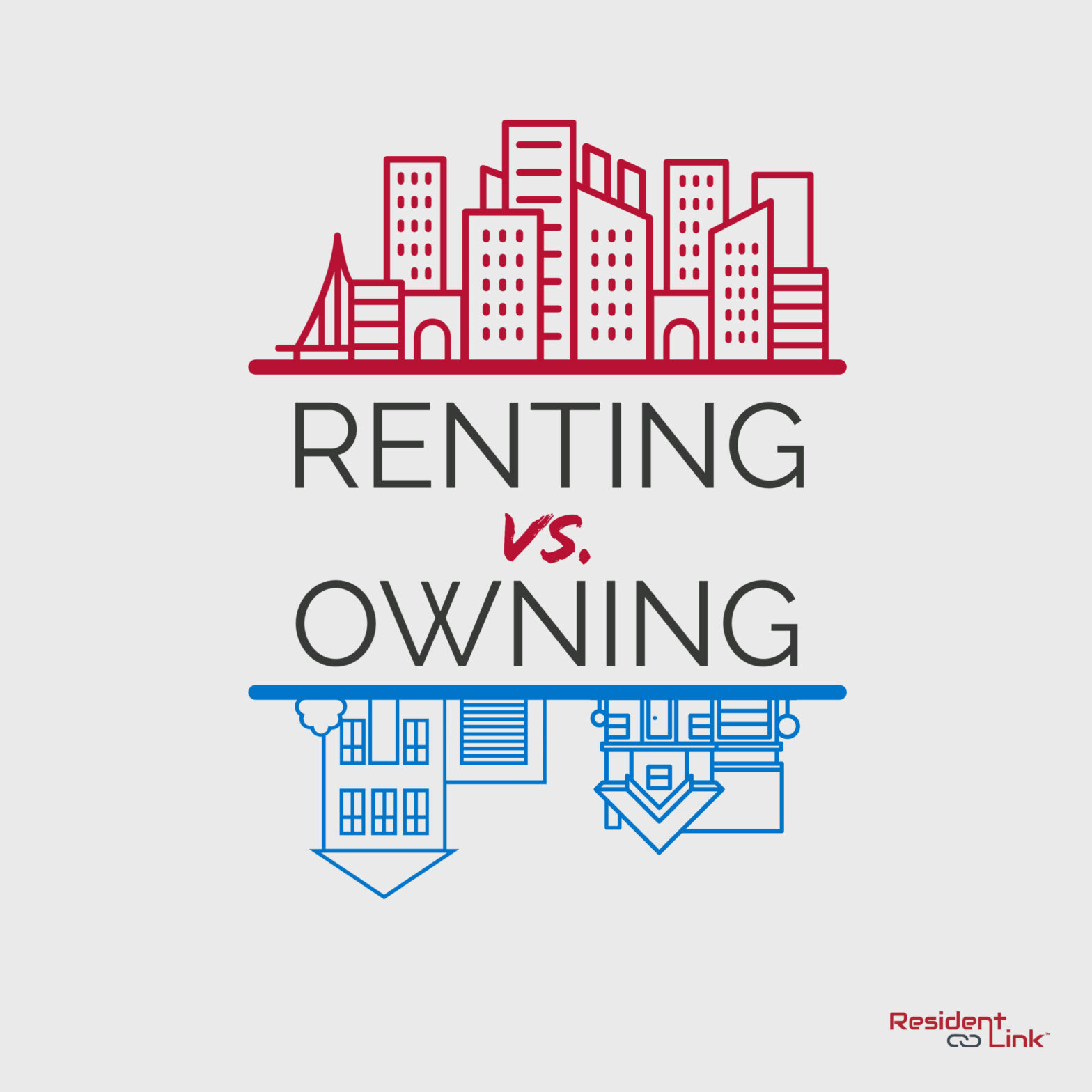
Real estate and home ownership continue to be hot topics of conversation among young adults and families alike. The “American Dream” has long been associated with owning a home, and the benefits of renting are often overlooked.
In reality, renting doesn’t mean you’re throwing away money every month, and owning doesn’t always help you build wealth in the long run.
Benefits of Renting vs. Owning
Renting gets a bad rap because it’s often (wrongly) associated with instability and poor financial planning. However, renting can actually provide a number of advantages, especially for those who are just starting out or are not ready to commit to a long-term mortgage.
When it comes to renting versus owning, there are pros and cons to both. Ultimately, the decision comes down to what makes the most financial sense for you and your family. If you’re looking for flexibility, predictability, and to save money, renting may be the best option for you.
Top 3 Advantages of Renting vs. Owning a Home
1. Fewer Costs and Responsibilities
One of the biggest advantages of renting is that it generally costs less than owning a home. When you lease as a resident, you’re only responsible for your monthly rent payment and maybe the utilities. As a homeowner, you’re also responsible for property taxes, homeowners’ insurance, mortgage payments, and routine maintenance and repairs. This can add hundreds if not thousands of dollars to your monthly expenses.
Sure, a mortgage payment may come with some tax benefits, but that doesn’t necessarily offset the high cost of homeownership. Additionally, in today’s market, the average mortgage and average lease aren’t that different in many metropolitan areas. If you can spend $1,400 a month for a mortgage on a fixer-upper home, you can probably spend $1,400 or a little less to lease a better-quality home or luxury apartment.
Of course, there are some renting costs that homeowners don’t have to worry about, like a security deposit, pet deposit, and application fees. But these are typically one-time costs that are much less than the long-term financial commitment of taking out a mortgage.
When you also take into consideration the costs of HOA fees, unexpected repairs, and other incidentals, renting is often the cheaper option – plus it saves you time! Think of all the responsibilities that come with owning a home, such as lawn maintenance and gutter cleaning. When you rent, your landlord is often responsible for these tasks.
2. Relocation and Flexibility
Another big advantage of renting is that it gives you the flexibility to move if your circumstances change. If you get a new job in a different city or state, it’s much easier (and less expensive) to pick up and move when you’re renting.
Of course, you can always sell your home, but depending on the market and your personal situation, that may not be possible or desirable. Plus, even if you are able to sell your home, it’s not guaranteed that you’ll make a profit. On the other hand, when you’re renting, you can usually give your property manager and landlord 30 days’ notice and be on your way. This is especially beneficial for young adults who may not be sure where they want to settle down or for families whose job situation is in flux.
People who work from home especially benefit from the flexibility that renting provides. Curious about what the east coast is like? Pick up and go there! Ready for the mountain view? Time to head west! There’s nothing tying you down beside a lease agreement, which can be as short or as long as you’d like.
3. Financial Predictability
For many people, one of the biggest advantages of renting is the predictability it provides. When you’re a homeowner, your mortgage payments can change based on interest rates, property taxes, and other factors.
With renting, however, your monthly payments are usually locked in for the duration of your lease. This makes it much easier to budget and plan for the future.
Of course, your landlord can still raise the rent when your lease is up for renewal, but you usually have advance notice of any changes. This predictability can be a big relief, especially for those who are on a tight budget or who prefer not to live with too much financial uncertainty.
Additionally, there’s no gamble of investment when you rent, and you cannot be foreclosed on. That means that your credit score and financial stability aren’t in jeopardy unless you get evicted. Identity theft is another important consideration. When you own a home, some personal information often becomes part of the public record, such as your name, address, and phone number. This information can then be accessed by identity thieves.
When you’re renting, however, your personal information is usually not made public, but if you’re interested in getting identity theft and credit protection it can help safeguard your information.
Helpful Resources for Renters
If you’re thinking about renting, there are a few helpful resources that can make the process easier and more lucrative. When considering renting vs. owning, check out websites such as Zillow or HotPads to compare rental prices in your area. Interested in building credit while you rent? A rent reporting service gives you the ability to build credit by reporting monthly rent payments.
Don’t let cultural norms and high-pressure society make you feel like renting is somehow “throwing away money.” In many cases, it’s actually the smart financial decision. Do your research and make the choice that makes the most sense for you – there’s no shame in renting!

